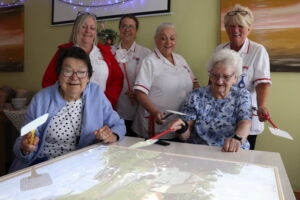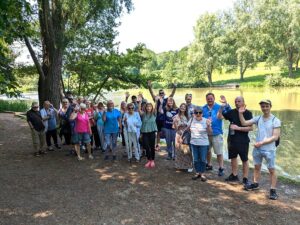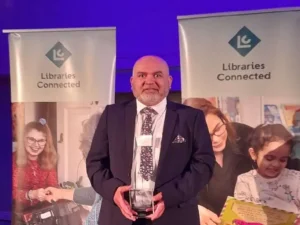How technology enabled care can shift the balance
Former minister and president of TEC Services Association (TSA), Paul Burstow, writes for Social Care Today on how technology enabled care can help the sector.
The inequality between health and social care has been laid bare during recent months. From media coverage to PPE resourcing, the Coronavirus crisis has revealed the national focus on the NHS and the chronic lack of understanding and recognition of its ‘Cinderella service’ sister, namely social care.
But things are shifting. There is still a huge way to go in terms of equal status and investment, but the profile of social care is undeniably higher. Politicians, journalists, businesses and the public are talking about care homes, home care staff and social workers – there is an awareness of the role they play in supporting the millions of people who are isolating or shielding.
One area of social care that is also gaining visibility is technology enabled care (TEC). Over 5,000 emergency responders, call operators and installers support more than two million vulnerable people in the UK, helping them to live independently, manage their long-term health conditions at home and stay out of hospital. The UK has more than 170 monitoring centres and most TEC workers are employed by the councils or housing associations that run these services.
For years, technology enabled care has not been recognised as a core part of the diverse social care sector. The perception that TEC is about equipment rather than a person-centred service, still persists. That is why I’m pleased to see more TEC workers step forward during this public health emergency to tell their stories.
Take David Fuente. He’s one of 58 wellbeing advisers at amica24, a monitoring service that looks after vulnerable people in the Midlands and South West. Pre-pandemic, David’s team made more than 15,000 check-in calls a year, reminding people to take their medication and offering social interaction. Their call volume has increased by 25% during lockdown with an extra 3,750 wellbeing calls made across March and April.
David believes that if his team were not proactively contacting people, there would be a lot more 999 calls around COVID-19 because people just don’t know who to turn to. He feels the calls prevent loneliness and the deterioration that can come from poor mental health and anxiety.
For example, when the monitoring centre received a series of personal alarm alerts from a man in his 40s with mental health problems, they decided to put twice weekly wellbeing calls in place, offering regular reassurance. In a recent call, the man told the operator he was running out of food and they signposted him to a community hub who got him the help that he needed. David explains that for people like this, these calls can be the difference between life and death.
In Lancashire, Lorraine Duong, an emergency home responder at Progress Lifeline has had similar experiences. When she received a personal alarm alert from a profoundly deaf elderly man, she found him distressed, freezing and unwell. He didn’t have family, so Lorraine communicated with him via sign language, she made him comfortable, and when paramedics arrived, she went shopping for him, using her own money because he didn’t have any food in the house.
Following Lorraine’s intervention, carers now visit this man four times a day, the correct medication is being given, regular food parcels are being delivered, a frailty nurse is in place and the heating in the man’s property has been fixed.
Over the past few months, I’ve heard countless stories like this, with call operators, emergency responders and TEC installers quickly adapting their services in lockdown to ensure the trusted lifeline they provide to millions is not broken.
With the majority of those 2.5 million people identified as extremely vulnerable still shielding, and social distancing set to continue, the role TEC can play in giving individuals peace of mind and practical help is more important than ever. Combine this with the support TEC workers can play in sustaining NHS and care capacity, encouraging vulnerable people to engage with test and trace systems and protecting care homes and the vital contribution of our sector becomes clear.
My request to central and local government is to recognise this contribution and encourage an integrated system between TEC, health and social care. The technology enabled care sector has the expertise and capacity to proactively support vulnerable people to remain at home safely. We can be central to your response and we can help you rebuild and recover.
Paul Burstow is a social policy expert and former minister of state for social care. He also is president of TEC Services Association (TSA), the national body for technology enabled care services www.tsa-voice.org.uk
















